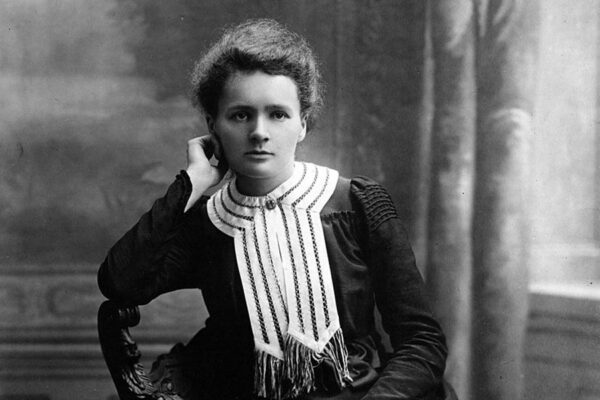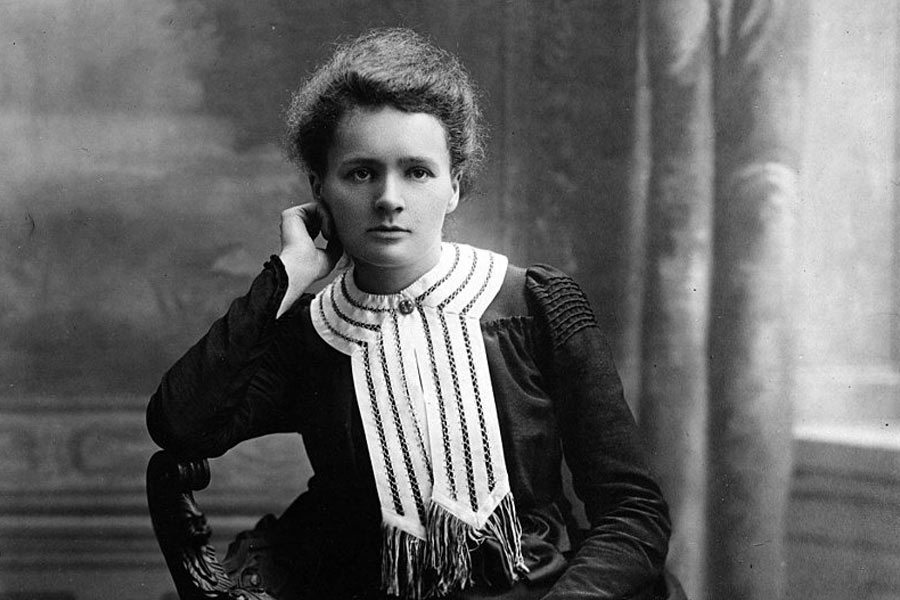Marie Curie: A Life of Groundbreaking Discoveries and Unwavering Dedication
Marie Curie, born Maria Sklodowska on November 7, 1867, in Warsaw, Poland, remains a towering figure in science history. Here’s a comprehensive journey through her remarkable life:
Early Life and Education:
- Born into a poor but intellectually curious family in Russian-occupied Poland.
- Faced financial hardships but possessed an insatiable thirst for knowledge.
- Secretly studied with her sister after being denied university admittance due to gender barriers.
- Moved to Paris in 1891 to pursue higher education at the Sorbonne, earning degrees in physics and mathematics.
Pioneering Discoveries:
- Became fascinated by Henri Becquerel’s discovery of radioactivity in 1896.
- Partnered with her husband, Pierre Curie, to research this mysterious phenomenon.
- Coined the term “radioactivity” to describe the spontaneous emission of energy from certain elements.
- Identified two new radioactive elements: polonium (named after her homeland) and radium in 1898.
- Developed innovative techniques for isolating and measuring radioactive substances.
Twice a Nobel Laureate:
- Shared the 1903 Nobel Prize in Physics with Pierre Curie and Henri Becquerel for their work on radioactivity.
- Tragically, Pierre died in 1906, leaving Marie deeply heartbroken.
- Undeterred, she continued her research, becoming the first woman to hold a professorship at the Sorbonne.
- Awarded the 1911 Nobel Prize in Chemistry for isolating pure radium – the first person to win the Nobel Prize twice, and the only person to win in two different scientific fields.
World War I and Medical Applications:
- During World War I, developed mobile X-ray units to help surgeons locate shrapnel in wounded soldiers, earning her the nickname “Madame Curie of the Battlefields.”
- Continued her research on the medical applications of radium, paving the way for cancer treatment.
Legacy and Impact:
- Died in 1934 from aplastic anemia, likely caused by prolonged exposure to radiation.
- Her groundbreaking discoveries had a profound impact on physics, chemistry, and medicine.
- Became a global icon for scientific excellence and resilience in the face of adversity.
- Inspired generations of scientists, particularly women, to pursue careers in STEM fields.

Beyond the Facts:
- Marie Curie’s life was not just about scientific breakthroughs. She faced significant personal challenges, including overcoming financial hardship, gender discrimination, and the tragic loss of her husband.
- She was a tireless advocate for scientific research and its potential to improve human lives.
- Her dedication to her work and unwavering commitment to science continue to inspire us today.
For further exploration:
- Learn more about Marie Curie’s life and work through reputable biographies and scientific articles.
- Visit the Curie museums in Paris and Warsaw to gain deeper insights into her legacy.
- Explore how her discoveries contributed to the development of new technologies and medical treatments.
Marie Curie’s story is one of remarkable achievement, personal struggle, and enduring impact. By delving deeper into her life, we can gain valuable insights into the spirit of scientific exploration and the power of human potential.

